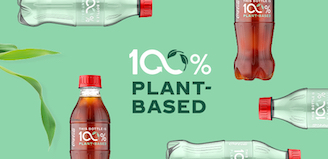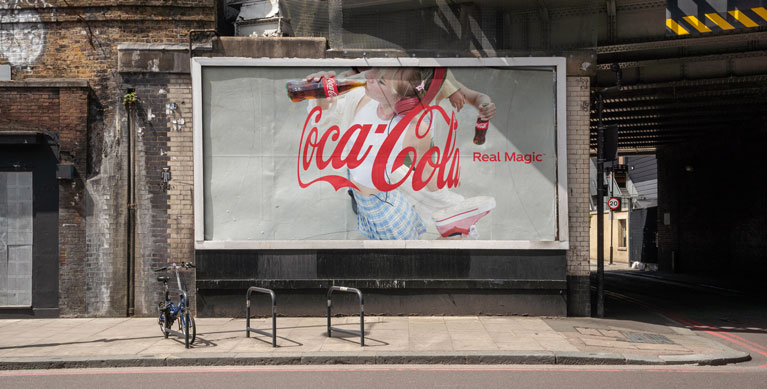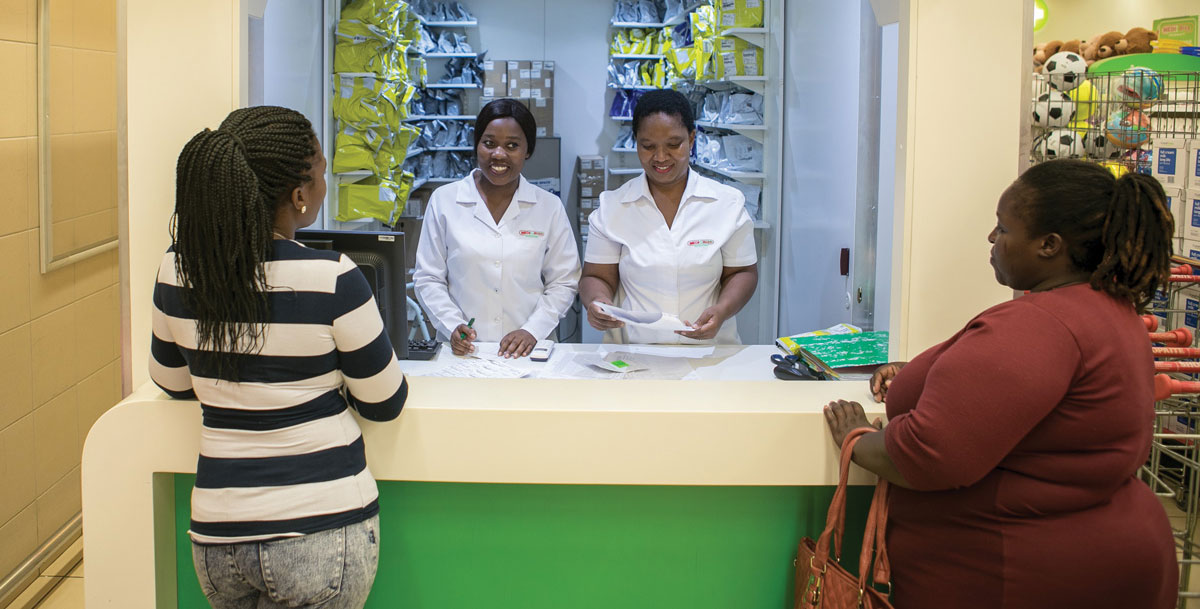
The Coca‑Cola Company Announces Industry-Leading Target for Reusable Packaging
02-11-2022
The Coca‑Cola Company today announced an industry-leading goal to significantly boost its use of reusable packaging. By 2030, the company aims to have at least 25% of all beverages globally across its portfolio of brands sold in refillable/returnable glass or plastic bottles, or in refillable containers through traditional fountain or Coca‑Cola Freestyle dispensers.
“We continue to put consumers at the center of all we do,” said Elaine Bowers Coventry, Chief Customer & Commercial Officer, The Coca‑Cola Company. “One way to do that is by offering sustainable packaging types. Accelerating use of reusable packages provides added value for consumers and customers while supporting our World Without Waste goal to collect a bottle or can for every one we sell by 2030.”
The company’s World Without Waste initiative remains focused on its three core pillars:
DESIGN: Make all of our primary consumer packaging recyclable by 2025. Use 50% recycled material in our packaging by 2030.
COLLECT: Collect and recycle a bottle or can for every one we sell by 2030.
PARTNER: Bring people together to support a healthy, debris-free environment.
By increasing our use of reusable packaging, we promote a circular economy as refillable containers have high levels of collection and are low-carbon footprint beverage containers, because the container collection is built into the beverage delivery model.
As the Ellen MacArthur Foundation (EMF) notes in its Reuse: Rethinking Packaging report, converting 20% of global plastic packaging into reuse models is a $10 billion business opportunity that benefits customers and represents a crucial element in the quest to eliminate plastic waste and pollution.
A Proven Track Record with Reusables
Returnable glass bottles and refillable PET currently represent more than 50% of The Coca‑Cola Company’s product sales in more than 20 markets, and more than 25% of sales in another 20 markets.
Traditional refillable/returnable packaging accounted for approximately 16% of the company’s total volume in 2020. Use of refillables is growing in several markets, outperforming non-refillables in Germany and parts of Latin America, where reusable bottles represented 27% of transactions in 2020. Markets around the world have increased their focus on refillable packaging in recent years through initiatives that include:
- Expanding the rollout of the “Universal Bottle” that was first introduced in 2018 by Coca‑Cola Brazil and is now used in Argentina, Brazil, Chile, Colombia, Mexico, Guatemala and Panama. This innovative solution drives efficiency of collection, cleaning and filling by offering multiple sparkling and still brands in the same reusable bottle with a single color, shape and size. EMF recognized the Universal Bottle as a leading practice on reuse.
- Expanding the rollout of refillable 2-liter and 1.5-liter PET (RefPET) plastic bottles—which can be cleaned, refilled and reused before being recycled and made into new PET bottles—in South Africa.
- Collaborating with Carrefour to pilot a circular shopping system called Loop™ in France. Consumers can order a variety of products, including Coca‑Cola beverages, delivered to their home in customized packaging that is collected, cleaned, refilled and reused or recycled.
- Partnering with Burger King® and TerraCycle in the United States for a pilot program in select cities to reduce single-use packaging waste by offering reusable food containers and beverage cups.
- Introducing reusable cups with microchip technology for use with Coca‑Cola Freestyle machines for use at theme parks, and on university campuses and cruise ships.
These and other similar sustainability efforts helped pave the way for the global reusable packaging target we are announcing today, which will require significant investment, particularly in markets with limited refillable/returnable infrastructure.

“Reusable packaging is among the most effective ways to reduce waste, use fewer resources and lower our carbon footprint in support of a circular economy,” said Ben Jordan, Senior Director, Packaging and Climate of The Coca‑Cola Company. “We will continue to highlight markets that are leading the way with reusable packaging best practices, and to support other markets as they increase their use of reusable packaging,” Jordan said, adding that each market will approach the goal in a different way.
Forward-Looking Statements:
This press release may contain statements, estimates or projections that constitute “forward-looking statements” as defined under U.S. federal securities laws. Generally, the words “believe,” “expect,” “intend,” “estimate,” “anticipate,” “project,” “will” and similar expressions identify forward-looking statements, which generally are not historical in nature. Forward-looking statements are subject to certain risks and uncertainties that could cause The Coca‑Cola Company’s actual results to differ materially from its historical experience and our present expectations or projections. These risks include, but are not limited to, the negative impacts of, and continuing uncertainties associated with the scope, severity and duration of the global COVID-19 pandemic and any resurgences of the pandemic, including the number of people contracting the virus, the impact of shelter-in-place and social distancing requirements, the impact of governmental actions across the globe to contain the virus, vaccine availability, rates of vaccination, the effectiveness of vaccines against existing and new variants of the virus, governmental or other vaccine mandates and potential associated business and supply chain disruptions, and the substance and pace of the post-pandemic economic recovery; an inability to realize the economic benefits from our productivity initiatives, including our reorganization and related strategic realignment initiatives; an inability to attract or retain a highly skilled and diverse workforce; increased competition; an inability to renew collective bargaining agreements on satisfactory terms, or we or our bottling partners experience strikes, work stoppages, labor shortages or labor unrest; an inability to be successful in our innovation activities; changes in the retail landscape or the loss of key retail or foodservice customers; an inability to expand operations in emerging and developing markets; increased cost, disruption of supply or shortage of energy or fuel; inflationary pressures; increased cost, disruption of supply or shortage of ingredients, other raw materials, packaging materials, aluminum cans and other containers; an inability to successfully manage new product launches; obesity and other health-related concerns; evolving consumer product and shopping preferences; product safety and quality concerns; perceived negative health consequences of certain ingredients, such as non-nutritive sweeteners and biotechnology-derived substances, and of other substances present in our beverage products or packaging materials; damage to our brand image, corporate reputation and social license to operate from negative publicity, whether or not warranted, concerning product safety or quality, workplace and human rights, obesity or other issues; an inability to maintain good relationships with our bottling partners; deterioration in our bottling partners’ financial condition; an inability to successfully integrate and manage consolidated bottling operations or other acquired businesses or brands; an inability to successfully manage our refranchising activities; increases in income tax rates, changes in income tax laws or the unfavorable resolution of tax matters, including the outcome of our ongoing tax dispute or any related disputes with the U.S. Internal Revenue Service (“IRS”); the possibility that the assumptions used to calculate our estimated aggregate incremental tax and interest liability related to the potential unfavorable outcome of the ongoing tax dispute with the IRS could significantly change; increased or new indirect taxes in the United States and throughout the world; changes in laws and regulations relating to beverage containers and packaging; significant additional labeling or warning requirements or limitations on the marketing or sale of our products; litigation or legal proceedings; conducting business in markets with high-risk legal compliance environments; failure to adequately protect, or disputes relating to, trademarks, formulae and other intellectual property rights; changes in, or failure to comply with, the laws and regulations applicable to our products or our business operations; fluctuations in foreign currency exchange rates; interest rate increases; unfavorable general economic conditions in the United States and international markets; an inability to achieve our overall long-term growth objectives; default by or failure of one or more of our counterparty financial institutions; impairment charges; failure to realize a significant portion of the anticipated benefits of our strategic relationship with Monster Beverage Corporation; an inability to protect our information systems against service interruption, misappropriation of data or breaches of security; failure to comply with personal data protection and privacy laws; failure to digitize the Coca‑Cola system; failure by our third-party service providers and business partners to satisfactorily fulfill their commitments and responsibilities; failure to achieve ESG goals and accurately report our progress due to operational, financial, legal, and other risks, many of which are outside our control, and are dependent on the actions of our bottling partners and other third parties; increasing concerns about the environmental impact of plastic bottles and other packaging materials; water scarcity and poor quality; increased demand for food products and decreased agricultural productivity; climate change and legal or regulatory responses thereto; adverse weather conditions; and other risks discussed in our filings with the Securities and Exchange Commission (the “SEC”), including our Annual Report on Form 10-K for the year ended December 31, 2020 and our subsequently filed Quarterly Reports on Form 10-Q, which filings are available from the SEC. You should not place undue reliance on forward-looking statements, which speak only as of the date they are made. We undertake no obligation to publicly update or revise any forward-looking statements.


